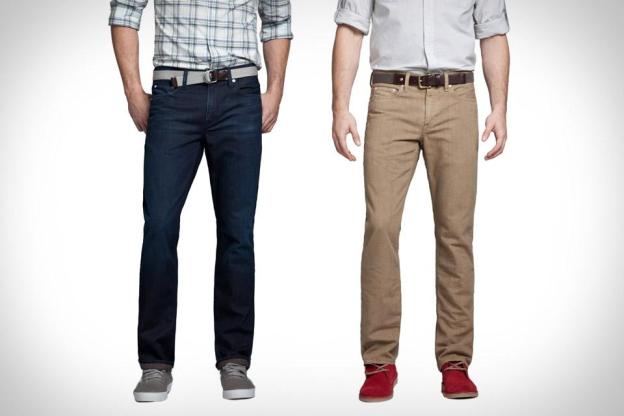
Nothing screams post-modern, 21st century men like a boy’s night drinking your favorite cheap or craft beers, hanging out with your friends watching sports or picking up ladies, and looking great in a well-fitted pair of jeans. And if you want a part of celebrating Earth Day this past weekend and continue to be green going forward, now you can by rocking a pair from Bonobos’ new line of pants that recycles beer bottles into stylish denim.
Available in dark Indigo rinse and Natural Canvas shades, the “Bottle Rockets” jeans are made from recycled cotton, polyester, and plastic beer bottles that have been scrapped and spun back into shape. And you thought those terrible plastic bottles of beer you get at sports venues are awful and worthless! Don’t try dipping these jeans in water hoping for some sort of flavoring or even a fragrance though.

Each pair of Bottle Rockets contain an average of three to five bottles of beer, and prints the ingredients of each piece inside the pocket liners. So not only can you be environmentally aware, you can show it off too especially if your love interest is into sustainability. The pants are American-made from fabric sourcing in North Carolina, designing in New York, and stitching in Los Angeles.
A pair of the Bottle Rockets is $135 and comes a straight-leg cut in all standard waist sizes and lengths. Shipping is free in the continental U.S., and if you happen to dislike the fit you can also make a complimentary return provided by Bonobos. If you’re looking for a new addition to welcoming this spring season, why not go green and look dashing at the same time? Dark blue jeans are slimming and looks great on many body types, while khaki-colored pants suit any occasion from, business casual to a first date. Try them on today!


